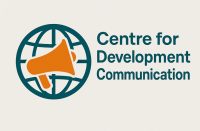National Open University of Nigeria International Journal of Peace Studies and Conflict Resolution VOL. 4, NO. 2, August, 2024 Authors: Professor Emmanuel Samu Dandaura & Audu Liberty Oseni
Abstract
It has been observed that many conflicts are unresolved because of the inability of state and non-state actors to facilitate active participation and full community involvement in addressing conflicts through a participatory communication process. In a sample representation of an estimated 203,721 populations in the Buruku community of Benue State, North-Central Zone adopted as a case study, the study examined the effectiveness of participatory communication in conflict resolution. Using participatory communication theory and primary sources of data gathering and analysis methods through Focused Group Discussions (FGDs) and Key Informant Interviews (KIIs), the study found that participatory communication facilitates active participation and full community involvement in addressing conflicts impacting them through the communication process. Also, the study established that conflict resolution initiatives that deployed participatory communication were more successful when compared to those that did not. Therefore, the study concluded that participatory communication is the most appropriate tool to address conflicts in pastoral communities. This is because it enables all strategic community stakeholders and parties to be actively involved in dialogue, and negotiations, and proffering homegrown solutions in addressing conflicts impacting them. Hence, the study recommended that state and non-state actors should deploy participatory communication in all interventions seeking conflict resolution among communities and individuals.
Keywords: Communication, Community, Conflict, Participatory, Resolution
